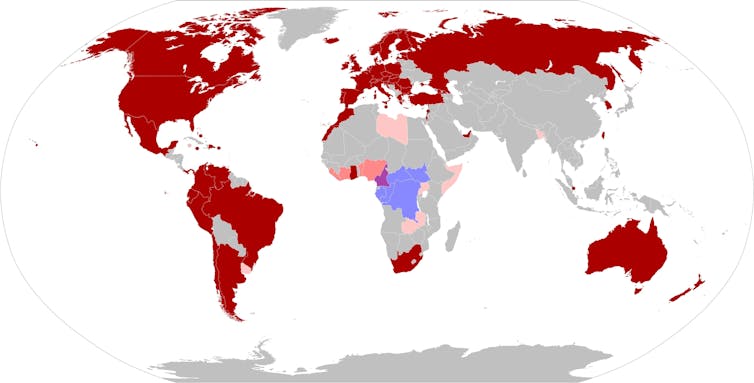Monkeypox is the latest global public health threat to make headlines. Most people who contract the monkeypox virus experience flu-like symptoms and a blistery rash that lasts two to four weeks, but a small percentage of infected people develop sepsis or other severe and potentially fatal complications.
(WHO).- It is not uncommon for there to be small outbreaks of monkeypox in Central and West Africa, but in the last few weeks, dozens of countries from other world regions have reported thousands of cases of monkeypox.
As an infectious disease epidemiologist, I’ve received many inquiries from colleagues and friends about whether a monkeypox pandemic will be the next big disruption to our lives. A disease is considered to be pandemic when two separate conditions are met: cases are occurring globally and the number of cases being diagnosed is large enough to qualify as epidemic. An epidemic is characterized by new cases of a disease occurring at a higher than typical rate in at least several communities.
While the monkeypox situation is certainly newsworthy, as of mid-July 2022, it did not clearly meet both of the requirements for pandemic status. More importantly, the current evidence suggests that monkeypox is very unlikely to become a global health catastrophe even if the virus spreads and becomes pandemic.

Is monkeypox global?
Both the 2009 H1N1 influenza virus and the SARS-CoV-2 coronavirus that emerged in 2019 quickly spread to every region of the world. Global health experts were in full agreement that those were pandemic events. By contrast, the Ebola virus epidemic in West Africa from 2014 to 2016 was mostly contained to just that one region of the world and never spread globally.
The current distribution of monkeypox cases is somewhere between those two scenarios. As of mid-July 2022, about 9,200 total cases of monkeypox had been reported by 63 countries. For reasons that are not yet fully understood, almost all of those cases happened in Europe and the Americas, and only a few cases were reported by African, Asian and Middle Eastern countries.
TYT Newsroom


